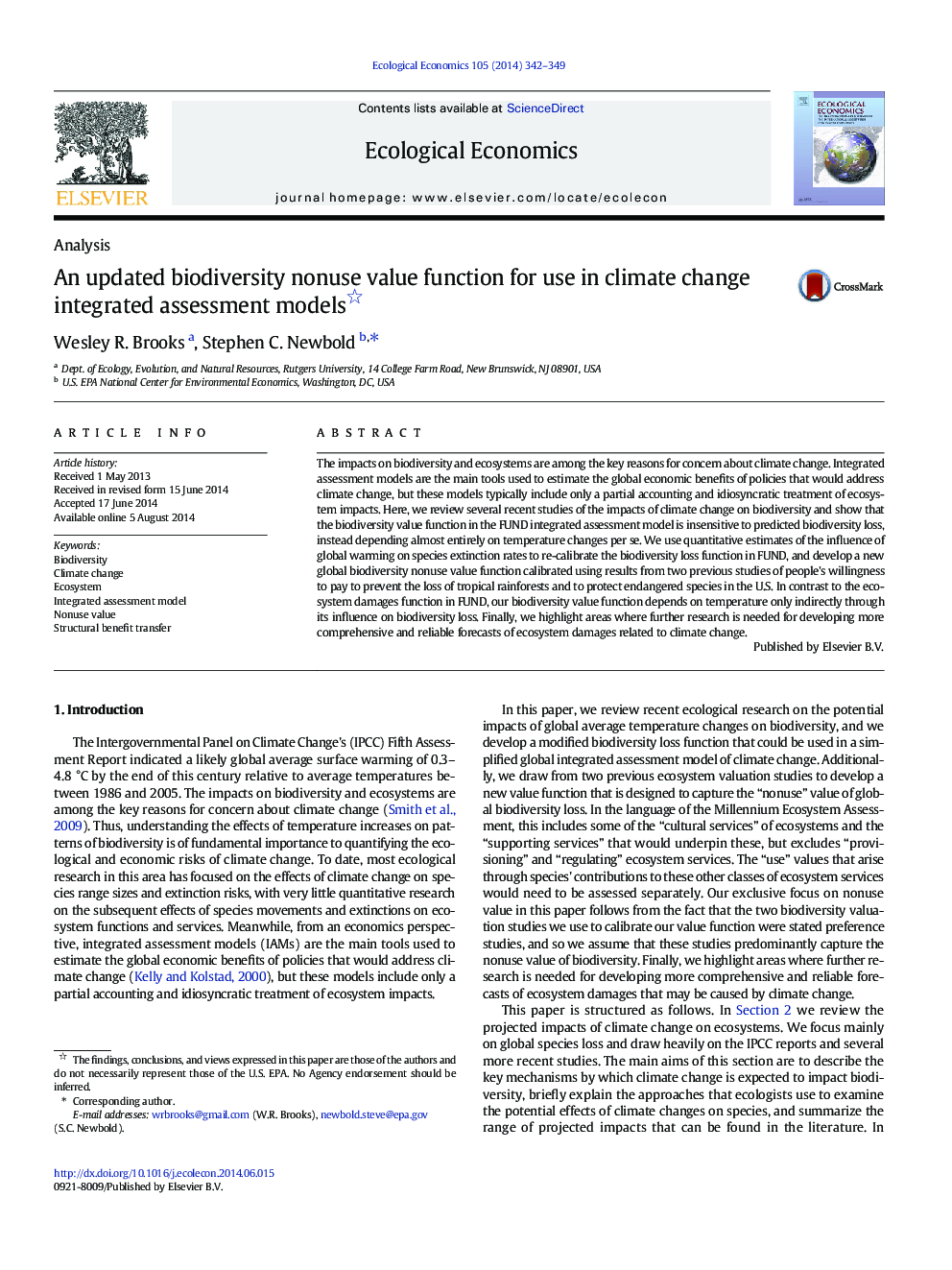| Article ID | Journal | Published Year | Pages | File Type |
|---|---|---|---|---|
| 5049729 | Ecological Economics | 2014 | 8 Pages |
â¢Integrated assessment models of climate change poorly gauge ecosystem impacts.â¢We developed new biodiversity loss and nonuse value functions.â¢We project greater rates of biodiversity losses over time compared to FUND3.3.â¢We project much larger long-term ecosystem damages compared to FUND3.3.â¢We highlight areas where further research is critical to improve forecasting.
The impacts on biodiversity and ecosystems are among the key reasons for concern about climate change. Integrated assessment models are the main tools used to estimate the global economic benefits of policies that would address climate change, but these models typically include only a partial accounting and idiosyncratic treatment of ecosystem impacts. Here, we review several recent studies of the impacts of climate change on biodiversity and show that the biodiversity value function in the FUND integrated assessment model is insensitive to predicted biodiversity loss, instead depending almost entirely on temperature changes per se. We use quantitative estimates of the influence of global warming on species extinction rates to re-calibrate the biodiversity loss function in FUND, and develop a new global biodiversity nonuse value function calibrated using results from two previous studies of people's willingness to pay to prevent the loss of tropical rainforests and to protect endangered species in the U.S. In contrast to the ecosystem damages function in FUND, our biodiversity value function depends on temperature only indirectly through its influence on biodiversity loss. Finally, we highlight areas where further research is needed for developing more comprehensive and reliable forecasts of ecosystem damages related to climate change.
